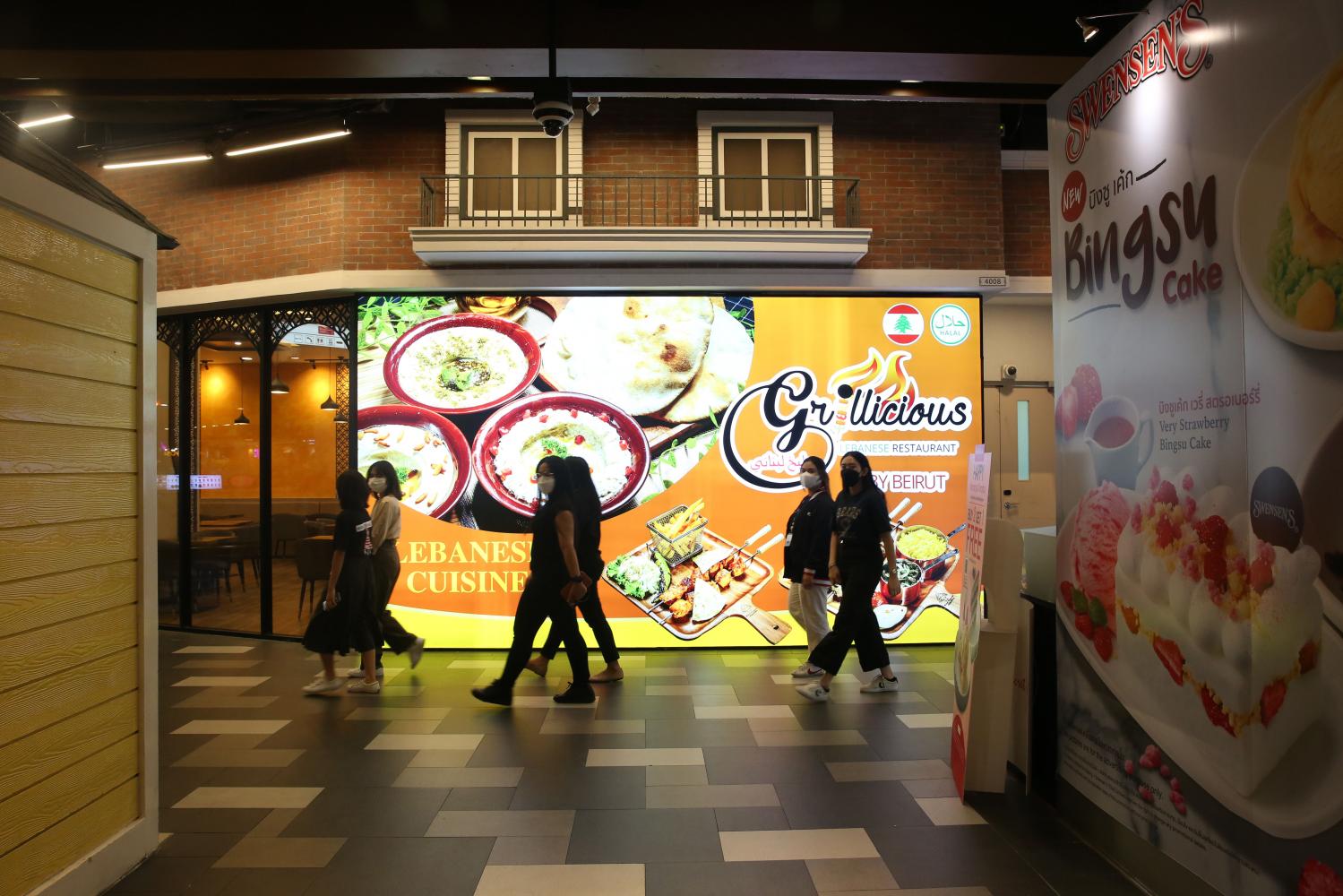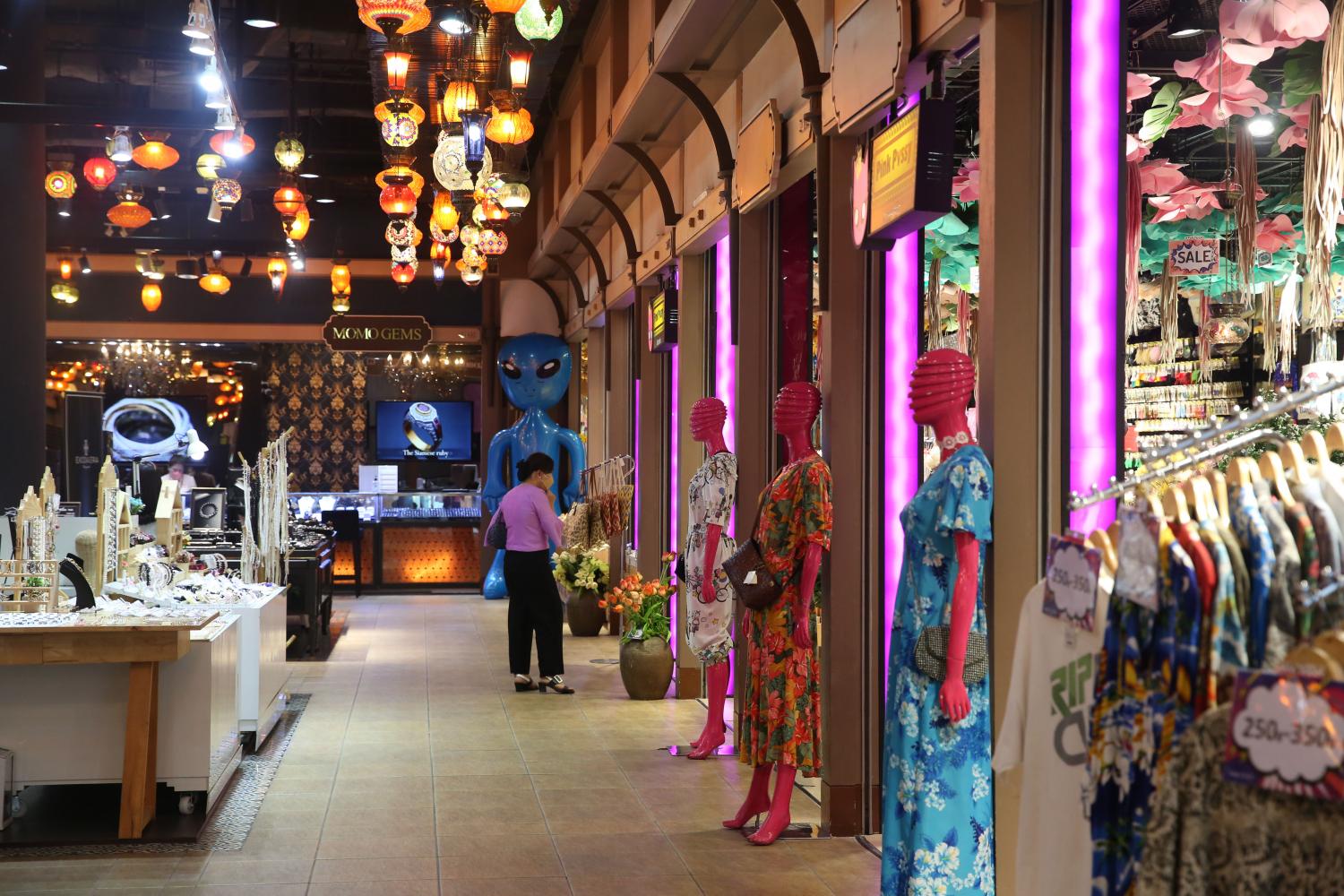
Over the past 18 months, the global spread of the pandemic has taken its toll on the economies of many countries. In Thailand, some believe a relief budget of 3 trillion baht may be inadequate.
Assuming the country can achieve herd immunity by the end of this year as promised by the prime minister, every business sector is urging the government to adopt practical measures to coexist with the pandemic rather than restricting economic activities every time new infections expand.
While few countries in the world have been able to contain the virus by maintaining strict border controls and issuing draconian lockdowns, more countries are opting for measures aimed at coexistence, with people learning how to protect themselves against Covid-19.

BUSINESS HEALTH REDEFINED
The likelihood that Covid-19 will become an endemic disease is prompting factory owners to pay more heed to non-business factors crucial to ensure they stay afloat during a volatile situation.
While it is still necessary to consider growth and profits in terms of ensuring business health, entrepreneurs must also do more to ensure their enterprises keep Covid-19 infections firmly under control.
"Businesses started making adjustments since the first two outbreaks. The third wave only caused them to intensify their measures against Covid-19," said Kriengkrai Thiennukul, vice-chairman of the Federation of Thai Industries (FTI).
Many factories now conduct Covid-19 testing every one or two weeks by using rapid antigen test kits to separate infected workers from their coworkers.
These tests are one measure under the government's factory sandbox scheme that includes vaccinating workers and setting up field hospitals or factory accommodation isolation facilities within their compounds.
Despite the factory sandbox, Mr Kriengkrai is not confident it can ensure the overall health of the industrial sector.
"I think the current version of the factory sandbox has yet to really curb the outbreak in factories," he said.
The government has implemented the sandbox in four key industries -- automotive, electronic parts, food and medical equipment -- in Nonthaburi, Pathum Thani, Samut Sakhon and Chon Buri provinces.
The scheme must be extended to cover other industries, said Mr Kriengkrai.
To survive the crisis and build healthy businesses, entrepreneurs also need to consider an appropriate workforce size for their factories, he said.
Owners who have suffered from a dive in revenue need to reduce headcount, while those in the auto parts and medical equipment sectors may need to recruit more workers to deal with a labour shortage, said Mr Kriengkrai.
"The government should hold talks with neighbouring countries to import more migrant workers on the condition they are fully vaccinated," he said.
Mr Kriengkrai suggested what he called a "labour workforce sandbox" to prevent new clusters of infections.
Under this sandbox, temporary shelters are set up near borders for foreign workers, who must wait for their employers to pick them up and drive them to the factories.

A group of shoppers meander around newly reopened Terminal 21 mall in Bangkok. Varuth Hirunyatheb
ADAPT TO SURVIVE
Natalie Phanphensophon, chief operating officer of Coca Holding International Co, the operator of Coca Suki and Mango Tree restaurants, admitted business will be more difficult with Covid-19 likely to be around for a long time.
"We have to increase our caution with every step of our business because we can't predict what will happen in the future," Ms Natalie said.
She said the company previously focused on improving the service of its dine-in business, but now customer convenience is the top priority.
"Now our business has two models: serving customers at restaurants and delivering ready-to-eat food to them at home via the retail business," Ms Natalie said.
"My father taught me to go with the flow and be ready to adapt with speed. Our business has come too far to give up."
She said after enduring the pandemic for 18 months, the company is confident it can adapt.
All of Coca's employees have received two doses of Covid-19 vaccine, said Ms Natalie.

A woman browses goods on display in a store at Terminal 21 in Bangkok. Varuth Hirunyatheb
DON'T GIVE UP
Boonyong Tansakul, chief executive at Zen Corporation Plc, the operator of Zen and AKA Japanese restaurants, said the company adjusted its strategies throughout 2020 and this year in alignment with government measures to curb outbreaks.
While many companies chose to close their restaurants or freeze their business expansion in light of periodic state measures, Mr Boonyong remains positive.
"I believe in every crisis there is always an opportunity. We must not give up and we have to find out what customers want," he said.
Zen has opened 4-5 new Khiang street food stores per month during the pandemic.
"Khiang is the rising star, helping maintain our business during the pandemic," said Mr Boonyong.
"We believe Khiang is sustainable because the concept perfectly matches current customer demand, be it product, price point or convenience."
He said the restaurant business in large malls is a red ocean strategy and profit for such outlets had been declining year after year.
To sustain business after the pandemic is controlled, owners should gear up their efforts to recover as fast as possible, said Mr Boonyong.
"Change you and your employees' mindsets to be happy learning new approaches, turn difficulty to simplicity, change negative perspectives to positive and look at risk as an opportunity," he said.

An AIS shop resumes operations at CentralWorld department store in Bangkok, after restrictions aimed at curbing Covid-19 were eased on Wednesday. Chanat Katanyu
STAY ALERT FOR CHANGES
Voralak Tulaphorn, chief marketing officer of The Mall Group, said the company has learned many lessons during the pandemic on sales obstacles and changing the retail shopping paradigm.
"Though we can now reopen our stores as usual, we have to be more cautious, especially in cost efficiency management and inventory. We must always stay alert and ready to adapt to an uncontrollable situation in order to cash in on consumer demand," she said.
"We have to take seriously enforcement of safety measures to protect our stores and customers. It will take time to revive consumer confidence."
According to Ms Voralak, roughly 60-70% of customers have returned to the Mall's stores after they opened again on Sept 1.
"We expect business to resume gradually, at a slower pace than we hoped," she said.

Passengers queue to catch a flight at Suvarnabhumi airport following the resumption of domestic flights from dark red zones on Sept 1. Wichan Charoenkiatpakul
LENDING A HAND
Payong Srivanich, president of Krungthai Bank and chair of the Thai Bankers' Association, believes the virus will remain in Thailand for an extended period, so both people and businesses should adjust to coexist.
He said helping both individual and business customers with debt restructuring over the longer term is the banks' key role over the next 3-5 years.
The Bank of Thailand's relaxation of debt relief measures and bad debt classifications as well as offering loan-loss provisions to financial institutions allows banks to better help customers through several assistance instruments, said Mr Payong.
Banks need to reskill and upskill staff during the pandemic, in particular those handling new debt restructuring programmes, in addition to their regular business operations, he said.
Mr Payong said another banking goal is strengthening digital technology to improve services, adding convenience, speed and security during the outbreak.
"Banks have been developing digital processes such as digital contracts, digital signatures and digital communication to simplify and speed up services, as well as improve efficiency amid limited resources," he said.

The ambiance at Terminal 21 shopping mall in Bangkok which has resumed operations since Wednesday September 1, 2021 following the easing of restrictions by the CCSA. Varuth Hirunyatheb
STRUGGLING TO SURVIVE
The aviation industry has been walloped during the pandemic.
Travel restrictions from July to August beat down already cash-strapped airlines to the breaking point, with low-cost carriers suspending their payrolls last month.
While the financial aid the airlines were promised never reached the sector, carriers hope to sustain their businesses by resuming services without further lockdowns.
Nuntaporn Komonsittivate, head of commercial operations at Thai Lion Air (TLA), said if another lockdown were enforced, the airline would struggle to maintain its business.
The length of a new lockdown would determine whether the carrier could survive, said Ms Nuntaporn.
Airlines already agreed to adopt social distancing practices and many provinces have imposed travel restrictions including screening new arrivals. Such actions may make the government hesitant to impose another lockdown this year, she said.
Another positive sign is the mass vaccination rollout, which has started to gather speed, said Ms Nuntaporn.
The government plays a key role in increasing consumer confidence and encouraging people to coexist with Covid-19, which will eventually become like a seasonal flu, she said.
Apart from dispelling public concerns, preventive measures like wearing face masks have to continue, while the mass vaccination campaign has to be conducted effectively to reduce the spread of the virus and allow locals to move on with their lives, said Ms Nuntaporn.
Tourism relies on human connections between employees and travellers. Both groups must have their safety ensured, she said.
"The government has to raise awareness about tourism hygiene standards, both from hotels and transport services, to help restore travel confidence," Ms Nuntaporn said.
TLA has been focused on health and safety measures since the virus first emerged last year, in compliance with the regulations issued by the Civil Aviation Authority of Thailand as well as to protect airline workers and passengers from being exposed to the virus.

The ambiance at Terminal 21 shopping mall in Bangkok which has resumed operations since Wednesday September 1, 2021 following the easing of restrictions by the CCSA. Varuth Hirunyatheb